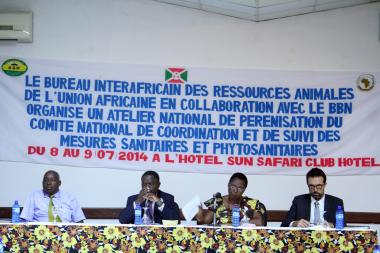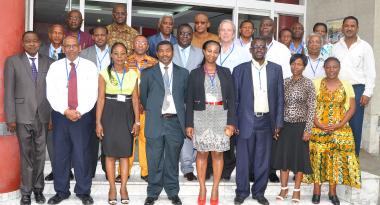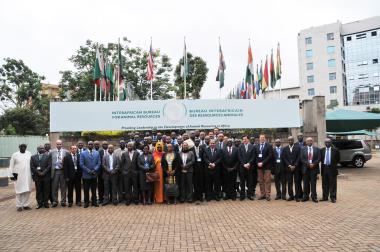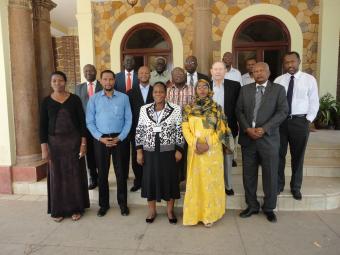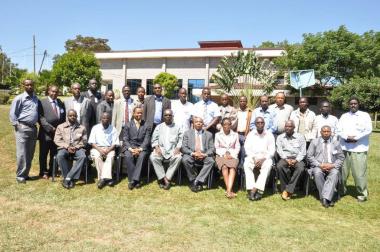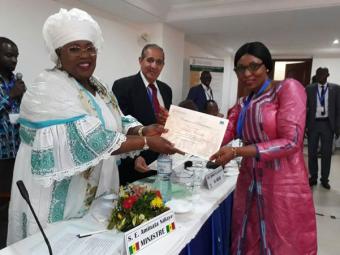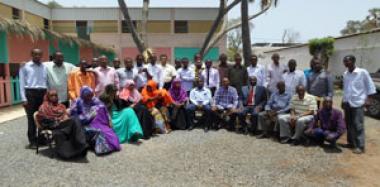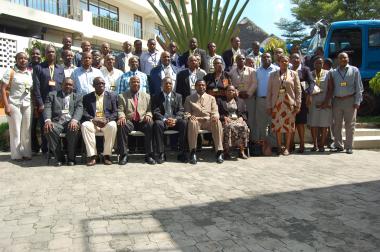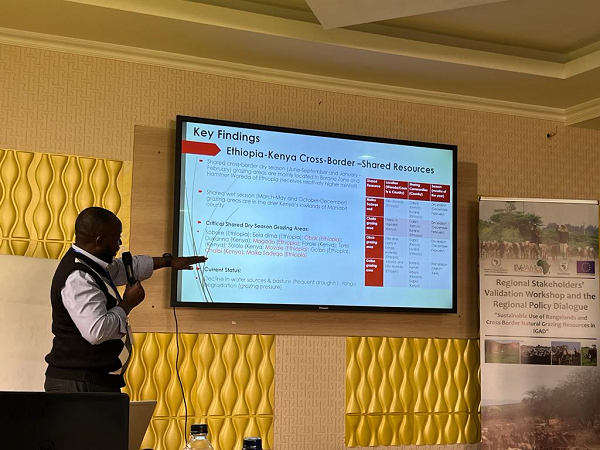
AU-IBAR and the Intergovernmental Authority on Development/ Centre for Pastoral Areas and Livestock Development – ICPALD are supporting initiatives on the "Sustainable Use of Rangelands and Cross-Border Natural Grazing Resources in IGAD". In accordance with this mission, a two-day workshop comprising a validation workshop and a policy dialogue is being held in Naivasha, Kenya from 25-26 April 2023, to:
• Review, validate, and update the draught regional report and the included lessons learned, best practices, and priority coordinated joint actions for promoting "Sustainable Use of Rangelands and Cross-Border Natural Grazing Resources in IGAD"
• Focus on building consensus on the domestication and implementation of sustainable joint management of cross-border rangeland resources, within the scope of the "Regional Rangeland Management Strategic Framework" of the IGAD, and thus contribute to the development and implementation of evidence-based policy changes.
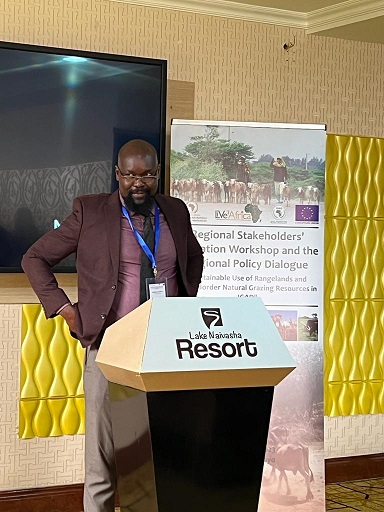
Dr. Kathiya (above), who represented IGAD/ICPALD, thanked member states for their participation in the initiative. He noted that the approaches associated with rangelands and international natural grazing resources transcend national borders. He hailed AU-IBAR for its ongoing collaboration with ICPALD and affirmed that the two organisations will continue to work together. Notably, it was determined that the findings of the report entitled "Sustainable Use of Rangelands and Cross-Border Natural Grazing Resources in IGAD" would aid in the implementation of the rangeland management strategy.
Work on the initiative on the Sustainable Use of Rangelands and Cross-Border Natural Grazing Resources in IGAD began in 2019 with the development of a rangeland management framework by IGAD/ICPALD, which had been collaborating closely with AU-IBAR.
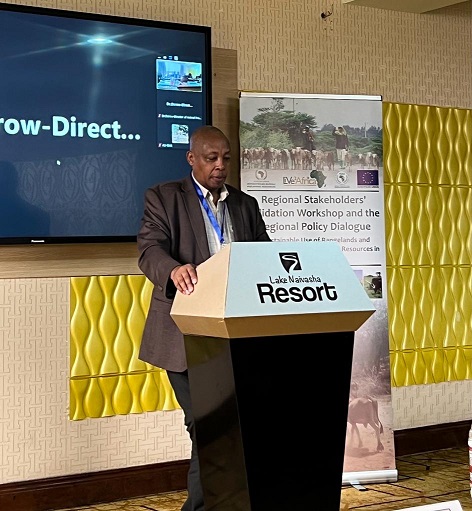
Prof. Wabacha, (above) speaking on behalf of the Acting Director of AU-IBAR, Dr. Nick Nwankpa, noted that a number of activities have been carried out in the lead-up to this workshop to support the resilience of the livestock production system(s) in IGAD Member States. For example, a consultation was conducted on the current status of cross-border pastoral resources management and the impact of seasonal animal cross-border movements in the cross-border regions of Ethiopia-Kenya; Kenya-Uganda; Ethiopia-Uganda-Kenya-South Sudan. The consultation resulted in a description of the status quo, proposed solutions, and recommendations for the sustainable management of cross-border rangeland and grazing resources in the study's cross-border regions.
In addition, it was mentioned that the regional report is being validated in order to include specific inputs on the measures and coordinated collaborative actions for the sustainable management of cross-border grazing resources. In addition, he informed the meeting that the validated version will be used to facilitate "A Regional Policy Dialogue" aimed at achieving consensus and promoting the adoption and implementation of validated measures and coordinated joint actions.
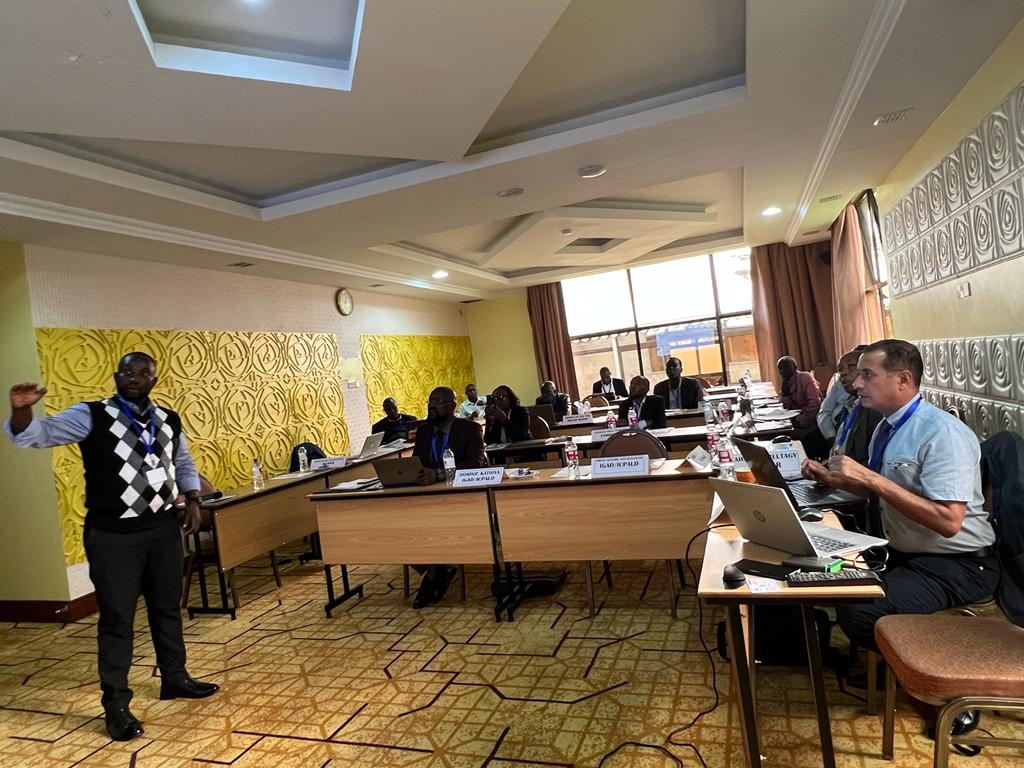
During the presentation of the study by Dr. Oliver Wasonga (the principal consultant), it was stated that the study was conducted in order to:
• Identify shared cross-border rangeland resources in the three cross-border zones and their current status.
• Analyze seasonal cross-border livestock transhumance and the environmental and socio-economic impacts on the hosting areas/communities.
• Map the resource-based conflicts and their causes in the respective cluster zones.
• Identify existing cross-border resource management institutions, policies and regulatory framework.
Dr. Wasonga mentioned that the findings of the study are anticipated to serve as a basis for a policy discourse in the IGAD region about the use and management of sustainable rangeland resources.
Participants at the meeting comprised Dr. Dominic Kathiya, the Representative of IGAD/ICPALD; delegates from IGAD Member States; representatives of the Developmental and Technical partners; and staff members from AU-IBAR.

